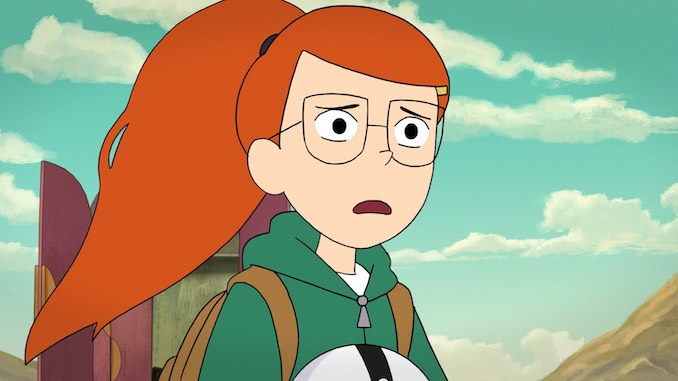The Erasure of Cartoons from HBO Max Also Removes a Prolific Moment of Animation History
Photo Courtesy of Cartoon Network
Warner Bros. used to be one of the pioneering companies in animation. Out of their countless profitable franchises, no property has had as much longevity or a storied repertoire as Looney Tunes, which is nearly a century old. The studio has launched iconic figures throughout animation, film, and television history for generations. By making incredible business moves such as acquiring the entire Hanna-Barbera catalog and launching Cartoon Network in the ‘90s through the now-defunct Turner, Warner Bros. made sure they were leaders in the medium. But thanks to the dealings of a new (in the words of John Oliver) “business daddy,” animation has been pushed down an infinite flight of stairs and lit on fire.
Within the past few weeks—which has probably felt like an eternity to animators—Warner Bros. Discovery began to purge animated series from their HBO Max streaming service, with each decision more repulsive than the last. The shocking news of movies such as Batgirl and Scooby-Doo: Holiday Haunt getting axed last month was writing on a wall as to what bad business moves were to come. As of last week, the David Zaslav-run company unceremoniously pulled over 25 animation titles from the streamer’s database without warning. Most of this was to enact Zaslav’s mission to save $50 billion in debt left by AT&T, something he has failed to do thus far in his tenure.
The quiet wave of disappearing HBO Max content that occurred late last month has become a Rube Goldberg machine where multiple shows and films, predominantly in animation, have begun to vanish with little to no availability found on other platforms. The company didn’t even have the common courtesy to notify any of the creators or staff on any of those said series of their removal.
If that wasn’t alienating enough, any mention or clips relating to shows such as Infinity Train and Mao Mao were permanently removed from official Warner Bros. Discovery-owned accounts. Infinity Train was a series made because of fan demand. Now, it’s as if it never even existed at all.
In other infuriating cases, completed shows like Little Ellen were about to release their new seasons, but were hit with delays or got canceled, and then entire series were wiped off the streamer. Twenty fully completed episodes of Little Ellen remain unreleased, with many artists’ hard work never seeing any light of day. The same goes for Mao Mao, which was announced to have a second season, but ultimately canceled under Discovery’s ownership.
Almost daily, the news keeps getting worse for artists working under Zaslav’s reign. Many projects currently in production are in a constant state of limbo as to whether they’ll be canceled or even seen. Earlier this week, the Cartoon Network original movie Driftwood (which went into production in May) was canceled. Other projects such as The Amazing World of Gumball Movie, and Batman: Caped Crusader were announced as not moving forward at HBO Max, though will be shopped elsewhere. Batman!
The dissonance between how the entertainment industry relied on animation during quarantine in 2020 and the way it’s treated today is astonishing. Animation was running the industry gamut during the COVID-19 lockdown, as it was the only form of entertainment being produced, commissioned, and released for a time. As families across the world were stuck at home, new shows kept dropping to entertain and power them through the year.
-

-

-

-

-

-

-

-

-

-

-

-

-

-

-

-

-

-

-

-

-

-

-

-

-

-

-

-

-

-

-

-

-

-

-

-

-

-

-

-








































